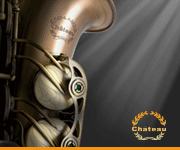Re: Learning to repair bent keys
Since it's a write-off, I see no harm in learning some repair skills. Bending damaged keys is the riskiest part of repair, since bending them back can break them if you don't have the right tools and haven't developed the right technique for bending brass. Depending on the severity of the bends, the keys may have experienced work hardening from the damage, that is, ithe brass becomes stiffer and more brittle, increasing the risk of breakage. If that has happened, you may have to heat them up with a torch to counteract the work hardening so you can bend them back. So you'd need at least some parallel jaw duckbill pliers, a lot of patience, and maybe a small butane torch for the key repair. If the keys are bent, the straightness of the hinges is also suspect. A fixed electric motor is generally used to straighten bent rods. You might be able to devise one by securing an electric drill to a workbench. Keep in mind, working with brass, that it tends to spring back, so you'll need to develop a feel for overbending. If you're patient and reasonably lucky, you could get the keys in some semblance of working order and decide if you want to continue. Then you'd have the more costly part of repair in front of you and the big decisions as to how you'd want to set the horn up. You'd need to assess how level the toneholes are, which could restrict the pads you are able to use. Or you could decide to level the toneholes, which can be done with carefully-sized pieces of plate glass with fine sandpaper glued on them if you don't want to spring for tonehole files ($$$). If, alternatively, you end up breaking a key or burning the lacquer, lessons learned on an expendable horn.
Musicmedic.com, Stohrermusic.com, and saxgourmet.com have good articles on saxophone repair, and tools and materials can be gotten from Musicmedic. Sometimes you can find better prices on tools and supplies through Amazon.
If you do decide to repair the horn, good luck and don't let it threaten your sanity!
Reply To Post
 Forgot Username? Forgot Password?
Forgot Username? Forgot Password?





